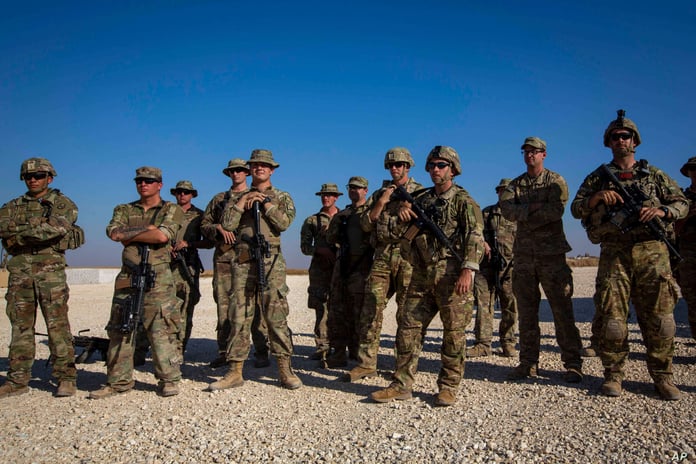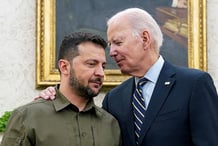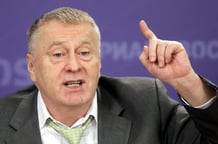
There has long been debate among policy analysts about the possibility of a US withdrawal from the Middle East under new strategic priorities.
Questions were renewed after the US withdrawal from Afghanistan about whether the United States should remain strongly involved militarily in the Middle East, while some expressed their fear that any US withdrawal from the region would lead to China and Russia filling this void.
Peter Humphrey, a former US diplomat and analyst at the Institute for National Strategic Studies and the National Defense University in Washington, believes that the US presence in the Middle East and Asia is necessary to continue fighting extremist groups, and says that China and Russia do not have great interests in the Middle-East.
John Hoffman Wrote in the Foreign Policy website, geopolitical issues expert in the Middle East and political Islam in an article on Foreign Policy that concerns related to China and Russia, “misleading” because they “are unable to fill the vacuum in the Middle East is not willing it.”
The article by a doctoral student at Georgetown University stated that the two countries “did not directly oppose” the US-led security system in the region, because they benefit from it, as the US security umbrella provided them with the opportunity to increase their participation in the region without having to bear the financial costs of protecting their interests.
He says that their ability to continue low-cost maneuvers in the region would be undermined by the absence of the United States in the Middle East if that were to happen.
In his article, the analyst considers that Russia and China act more “opportunistically” in the region than they have a renewal vision, and the Middle East does not represent an “existential interest” for them, and they are only interested in competition with Washington in their close neighborhood, and they are facing serious economic problems in addition to having Local environments full of controversies.
Assad’s regime “doesn’t matter”
The former diplomat agrees with this proposition and says that the Russian interest in the region is primarily geopolitical, and currently it is represented in maintaining its two military bases in Syria.
He added that Russia does not care about Syrian President Bashar al-Assad at all. Several years ago, the Syrian regime was a big customer for Russian weapons, and after the war, these weapons were provided to him in the form of contributions, which increased the economic burden on Moscow.
He says that if a new regime guarantees Moscow the preservation of the two bases, Moscow will welcome this and would prefer to leave Syria after it was “wearied” by the war.
As for China, its interest in the region is not geopolitical as much as it is economic. As for politically, the only driving force of its foreign policy is “making the world safe for tyranny, because the more dictatorships in the world, the safer they become.”
The Foreign Policy article says that Russia has intervened militarily in various forms in Syria, Libya, and other regions and has significantly increased its arms sales in the Middle East.
China has become the largest oil consumer in the region, the largest trading partner, and the largest investor, as Beijing seeks to integrate the ambitious “Belt and Road Initiative” with the economic reform and development programs of many countries in the region, and the volume of Chinese arms sales in the region has increased significantly.
Russia and China will have to be more directly involved in securing their respective interests in the region. However, both countries would strongly oppose the establishment and support of such a security system, according to the article.
Avoid disturbing the ‘delicate balance’
The writer notes that they have largely refrained from taking a position in major geopolitical rivalries in the region, such as the differences between Saudi Arabia and Iran, the conflict between the Gulf states, and the Israeli-Palestinian conflict, and thus avoided being drawn into these differences, and they were able to do so because the United States was the power dominant in the region and built a political system.
If Washington withdraws, this “delicate balance” pursued by Russia and China will collapse, forcing Moscow and Beijing to become more closely involved in the region’s political affairs if they seek to fill this void.
The former diplomat agrees that Russia and China do not want to assume security responsibility in the Middle East, noting that Beijing faces more important problems in its region related to extremist groups, and new problems will emerge after the Taliban seizes power and deepens its relationship with these groups.
The Foreign Policy article says that the argument for the “vacuum” that the United States will leave is “politically exploited” by regional actors that depend on the United States to maintain the security status quo from which they benefit, and thus seek to “pressure Washington” to remain strongly engaged in the region.
Humphrey says that the United States wants to divert its military resources to achieve other long-term goals in the world, but he expected that the status quo will remain as it is, because it will return to the areas where the militants will be active again and says that they are present in more than 25 countries around the world.













